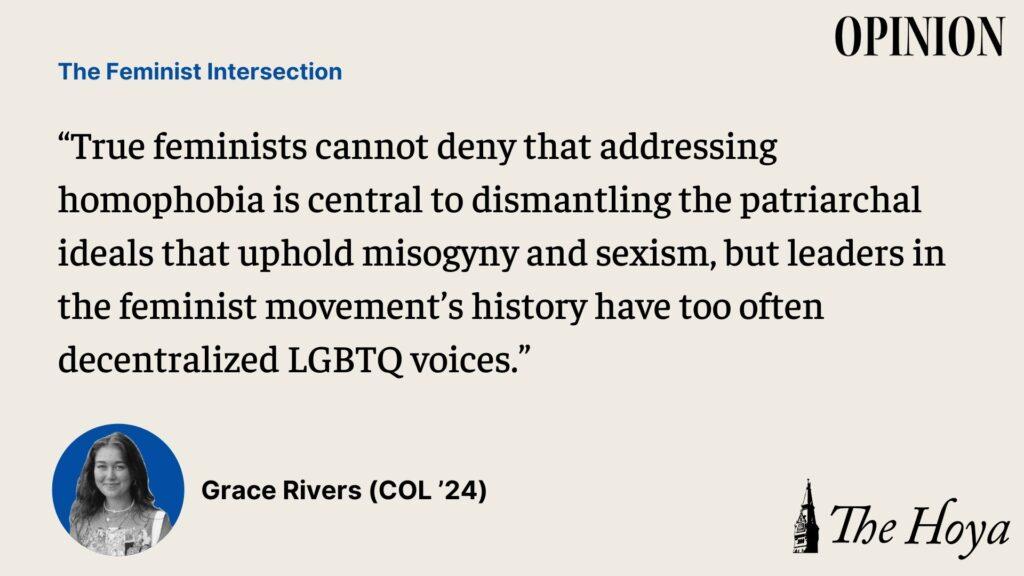Ever since I was little, my mother has instructed me to give an extra long hug to male family members at funerals. “They don’t always show it,” she would say, “but they are having a tough time right now.” This small gesture showed them that their vulnerability was safe with us, even if society made them to feel like outwardly expressing these emotions was a threat to their masculinity.
Men are often taught to express their emotions in a way that averts femininity. Don’t cry. Be strong. Don’t be vulnerable. Men are encouraged to adopt qualities of control, strength, forcefulness, rationality, strong work ethic and competitiveness, which are often considered antithetical to vulnerability. These expectations hinge on the same patriarchal ideals that deem women overly emotional, irrational or weak, and thus underline the need for feminism to expose and advocate for the reframing of masculinity.
It might sound counterintuitive for feminism to advocate for an issue affecting men. While feminism centralizes women’s experiences, it more broadly attempts to dismantle a patriarchal system that can oppress anyone.
This form of toxic masculinity — which promotes male domination and aggression — has a strong grip on many of the men in my life.
For example, many men feel the need to withhold emotional reactions through no fault of their own. In one instance, when my family members and friends gathered at my house one afternoon, my dog started to breathe irregularly for hours. Although my dad reassured me she would be okay, I knew he was secretly fearing for his companion’s wellbeing. My dog was taken to the hospital, from which she never returned. My dad never talked about it nor shed a single tear in front of my family. I could tell he was hurting but was simultaneously barred from expressing that hurt given the harmful constraints of toxic masculinity.
In a study conducted by the Social Issues Research Centre, 28% of men said they would cry in front of their children compared to 48% of women. The survey also revealed that only 30% of men indicated they cried in the last month compared to 70% of women.
The explanation is simple: Men are often discouraged from being in touch with their sensitivity under the patriarchal system, which dissuades them from showing emotion lest they be shamed for appearing weak. This results in detrimental implications for men’s mental health and promotes acts of violence that materialize in sexual assault and gun violence.
While nearly one in four women will seek some form of mental health treatment in a year, only about 13% of men will do the same. Men may often refuse therapy or other forms of mental health treatment, which has adverse consequences for the future. Consequently, in 2010, men accounted for 79% of the deaths by suicide, according to a study conducted by Mental Health of America .
Men are often positioned as the protectors under the patriarchy and are, thus, encouraged to engage in competition for status, which can take the form of violence. Women only account for around 20% of committed sex offenses according to the National Sexual Assault Research Center, leaving men to comprise the remaining 80%. A study by the Women’s Aid Federation of England found that 92% of defendants in abuse-related prosecutions in 2020 were men.
Additionally, men are three times more likely than women to own a firearm in the United States and account for more than 80% of perpetrators and victims of gun violence, according to Men Against Gun Violence.
Addressing the problem of toxic masculinity begins with encouraging men in our lives to be comfortable expressing their emotions. We have to show them that despite the limits that patriarchy places on their gender expression, their masculinity is not defined by suppressing emotion.
Sometimes we can even do this in ways that seem insignificant. When I am saying goodbye to my dad, I make sure to give him a hug and say, “I love you.” He used to awkwardly say it back, but I hear the confidence returning to his voice in regards to expressing this emotion. This is a small gesture that communicates a big message: It is okay for men to show affection. It is okay for men to hug, cry, be vulnerable and talk about their emotions.
As true feminists, we need to be conscious of the ways that oppressive systems don’t just harm women, but all people. In deconstructing toxic masculinity and social norms that discourage men from displaying vulnerable emotions, we are one step closer to dismantling a system that oppresses people of all genders.
Grace Rivers is a sophomore in the College. The Feminist Intersection is published every other week.










hoyalum • Mar 30, 2022 at 9:26 am
“In a study conducted by the Social Issues Research Centre, 28% of men said they would cry in front of their children compared to 48% of women”
Why are a majority of women reluctant to cry in front of their children? Why are most women suppressing their emotions? Toxic masculinity?
Mike • Feb 19, 2022 at 1:59 pm
How unfortunate to see the hope of our youth placed in the re-education of half of society. Feminists wrote the same platitudes in the Hoya 20 years ago (when I attended GU), and yet no amount of consent trainings or other initiatives has changed male aggression for the better over all these years. Isn’t it time for a different approach? How about rediscovering and honoring the good in men and masculinity (including in women), while also honoring the good in women and femininity (including in men)? I’d love to see Rivers write a column on the positive elements of masculinity.